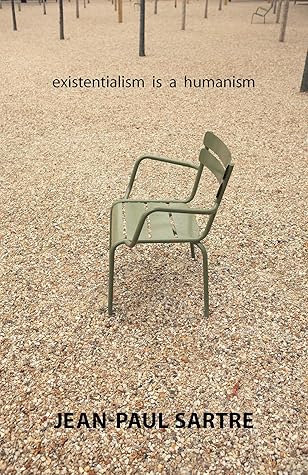More on this book
Community
Kindle Notes & Highlights
Those who find solace in the wisdom of the people—which is a sad, depressing thing—find us even sadder.
You’re going with the worst possible meaning/argument? But you’re supposed to be a philosopher? Yes, you are even sadder.
Not the wisdom of the people of Christendom/the state… but that of indigenous people. Existentialism’s absurd usually comes from the former, because yeah, the wisdom of the people has been drained out of those spaces and replaced with a top-down “wisdom” or a bottom-up “wisdom” of people used to top-down thinking and lacking the social structures of a healthy society (pre-agricultural, non-hierarchical social structures).
First, what do we mean by anguish? Existentialists like to say that man is in anguish. This is what they mean: a man who commits himself, and who realizes that he is not only the individual that he chooses to be, but also a legislator choosing at the same time what humanity as a whole should be, cannot help but be aware of his own full and profound responsibility. True, many people do not appear especially anguished, but we maintain that they are merely hiding their anguish or trying not to face it.
Ugh with the “everybody must necessarily think like I do, and I’ll hold them accountable for it.” I’ve been aware of this responsibility all my life, and I can assure you it has never brought me anguish. I felt up to the task. My anguish doesn’t come from my responsibility, it comes from having to take others’ responsibilities, too, and not being up to that task for long enough.
Or if I hear voices, what proof is there that they come from heaven and not from hell, or from my own subconscious, or some pathological condition? What proof is there that they are intended for me? What proof is there that I am the proper person to impose my conception of man on humanity? I will never find any proof at all, nor any convincing sign of it.
That’s for sure. No one has any right to impose upon humanity without backing it up with a convincing rationale, and voices/angels or appeals to authority aren’t convincing.
It is anguish pure and simple, of the kind experienced by all who have borne responsibilities.
Maybe if you’re new to responsibility? Responsibilities haven’t been scary for me in a loooong time. Unless that's what burnout is. Not being up for new responsibilities because you've already worn yourself out with them.
For example, when a military leader takes it upon himself to launch an attack and sends a number of men to their deaths, he chooses to do so, and, ultimately, makes that choice alone. Some orders may come from his superiors, but their scope is so broad that he is obliged to interpret them, and it is on his interpretation that the lives of ten, fourteen, or twenty men depend.
Militaries are part of the absurdness of state-level societies. Being a military leader (or a soldier who assents to letting leaders spend my life as they will) is not something I would ever want or choose to be (unless absolutely necessary), but I already understand that there would be hard choices to make in such a situation. THEN anguish could come into the picture.
My anguish is in not being able to escape the absurd that civilization has made and spread and destroyed the world with. I can only fight it. It doesn’t anguish me TO fight it, only to be deprived of a healthy and sustainable way of life and to watch my fellow humans and environmental community be deprived as well. I know what we’re missing… used to have and could have again if we weren’t so far gone. It’s the anguish of a doctor treating a terminal patient, not a general spending lives.
There could no longer be any a priori good, since there would be no infinite and perfect consciousness to conceive of it.
See? Still buying the concept that Christianity’s cosmology is the literal history of humanity… not realizing that human evolution for ages before even Judaism included the development of social dynamics/morality. Pagans before monotheism had morality. They had to get along with each other, too (and could do it much better, on a manageable scale, before anonymizing cities changed the dynamics after the agricultural revolution, and big moralizing gods had to be invented to threaten all-seeing punishment to keep anonymous urbanites from acting selfishly).
“You are free, so choose; in other words, invent. No general code of ethics can tell you what you ought to do; there are no signs in this world.” Catholics will reply: “But there are signs!” Be that as it may, it is I who chooses what those signs mean.
Only partly. Don’t forget about social meanings and the collective consciousness. These existentialists do seem to have individualist goggles on.


